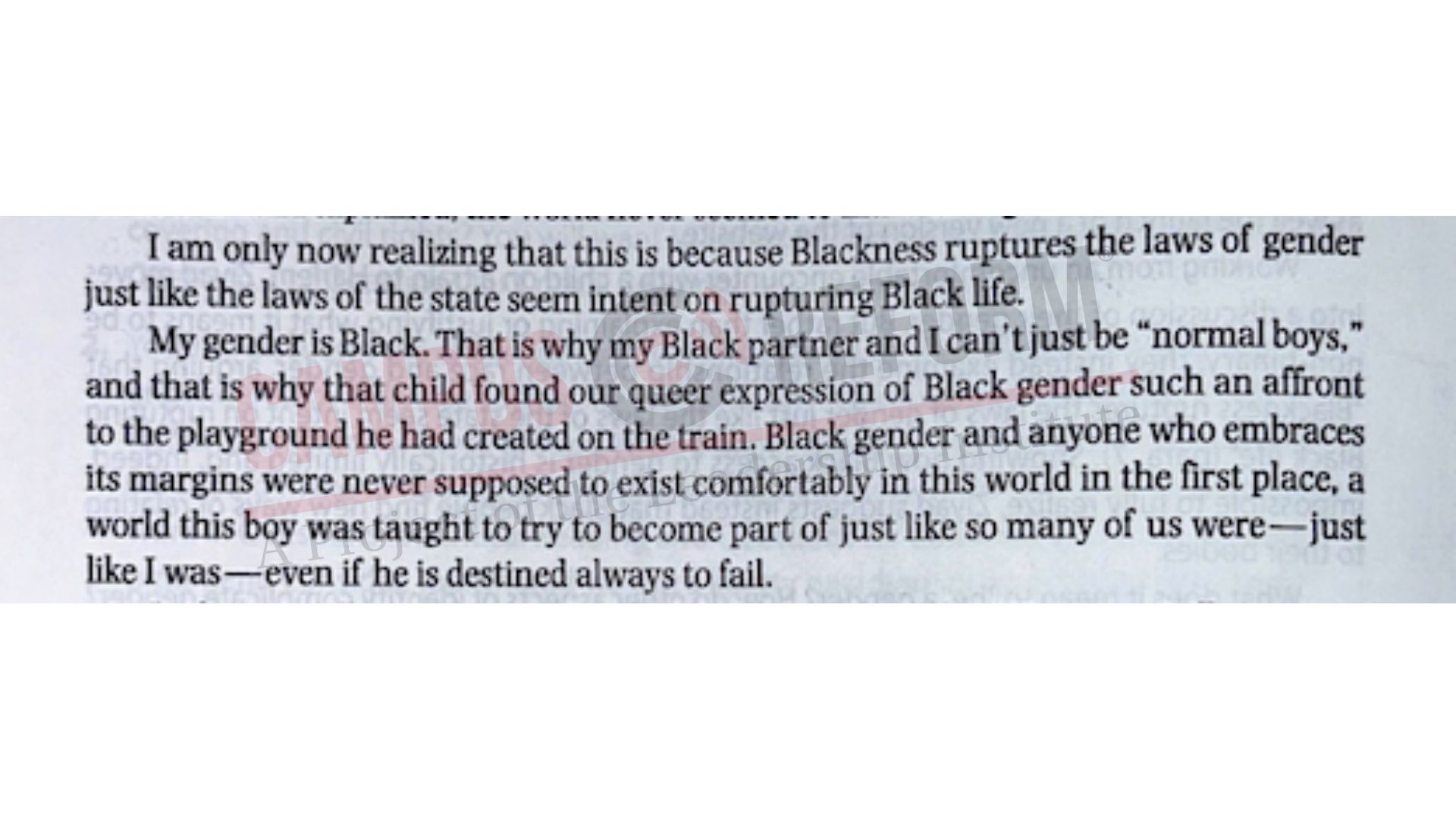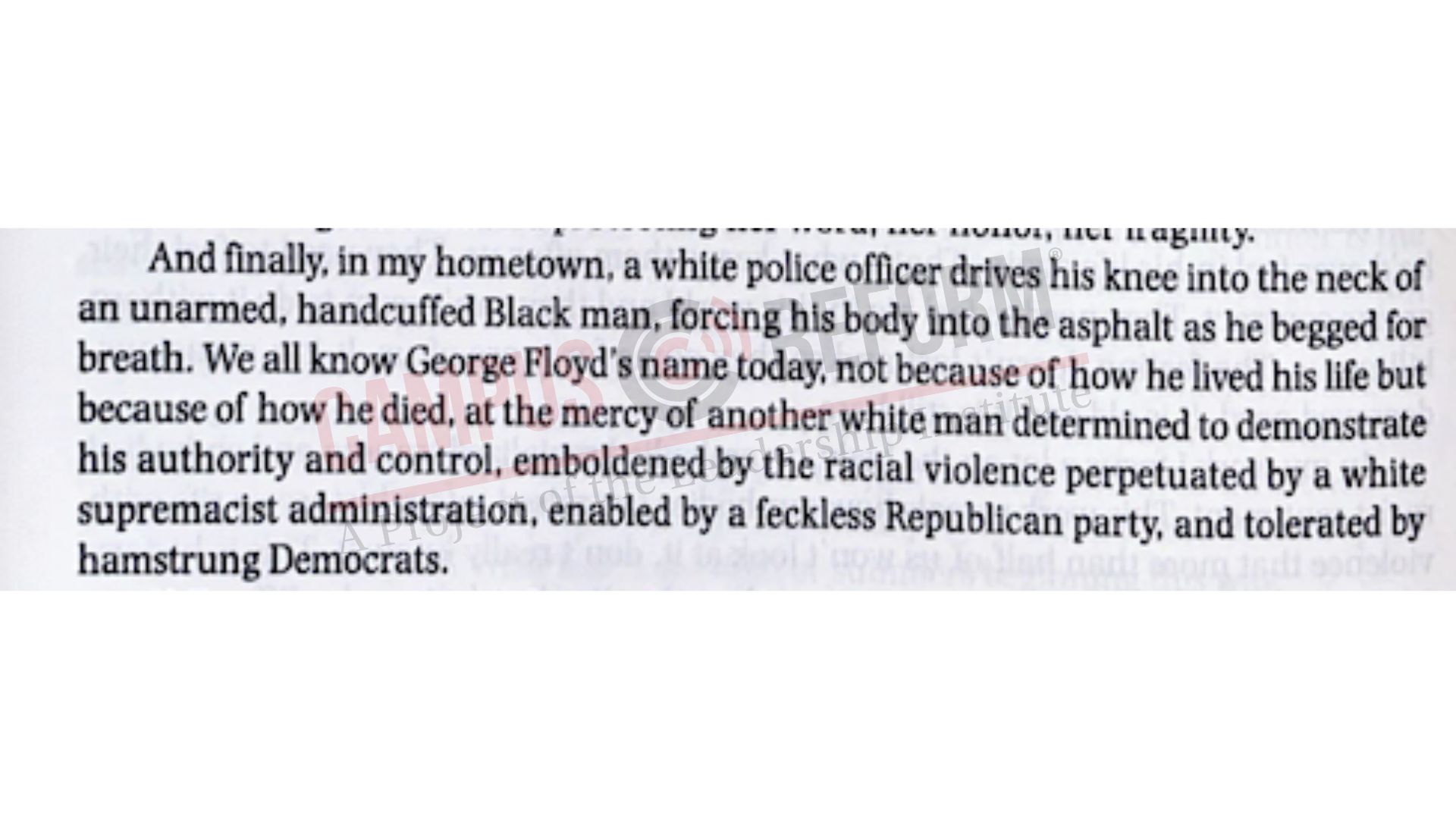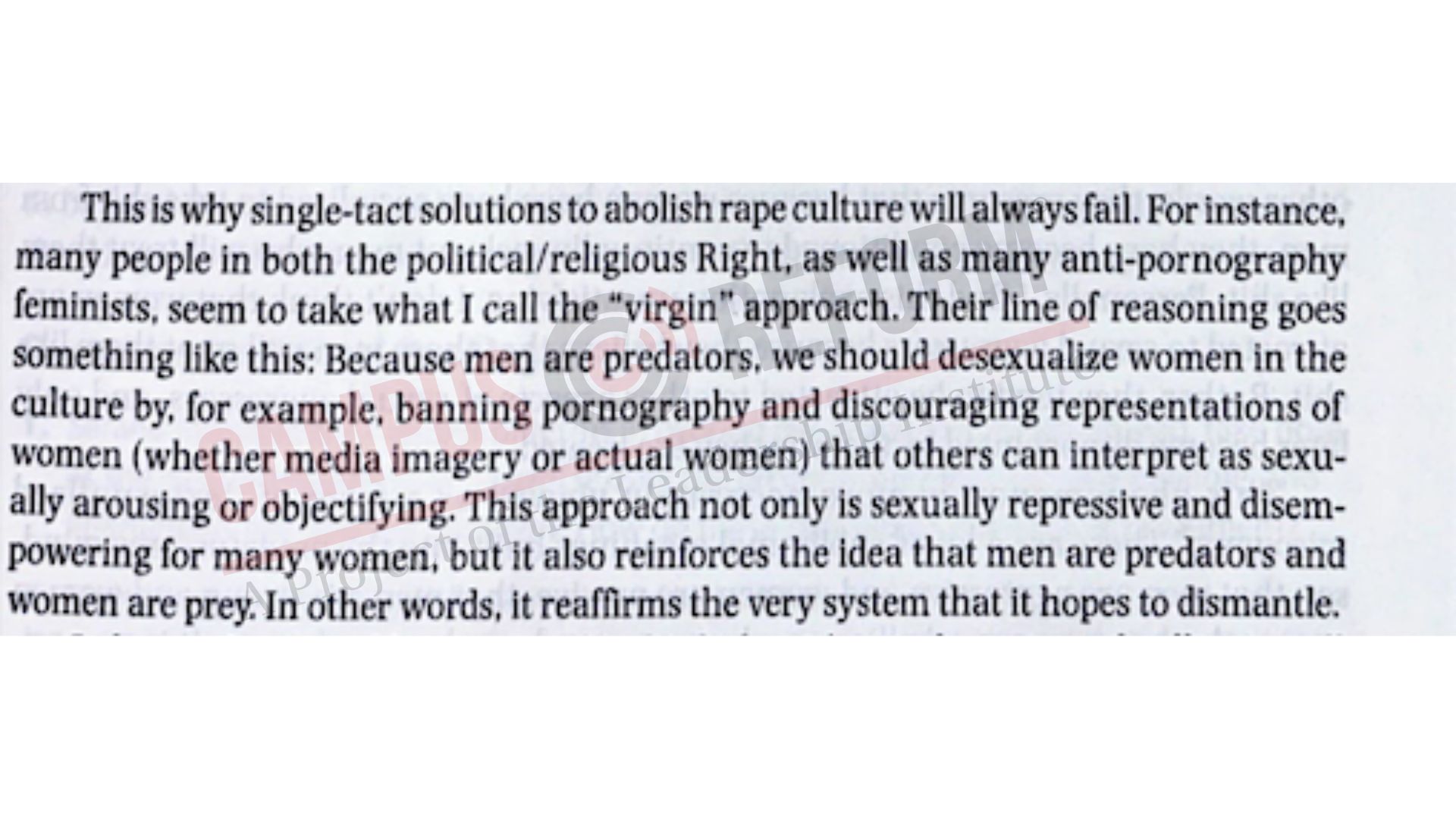‘My gender is Black’ -- Texas State textbook full of leftist insanity: EXCLUSIVE PHOTOS
A Texas State University English textbook contains multiple essays addressing topics related to Critical Theory concepts, including one in which the author claims that ‘[m]y gender is Black.’
‘The Coddling of the American Mind’ is seemingly the only conservative-leaning essay in the book.
A textbook used in a Texas State University English class contains multiple essays related to ideologies and theories associated with the left.
The textbook, “Emerging: Contemporary Readings for Writers” (Fifth Edition) by Barclay Barrios contains a collection of essays that are mostly focused on left wing-associated causes and subjects, and seemingly only one essay that focuses on conservative-leaning principles. The textbook is being taught to students at the English 1310: College Writing course at Texas State.
The syllabus describes the class as an “expository writing” course, and states: “You will study the principles of effective composition, with emphasis on the improvement of your own texts through revision and the critical reading of substantive nonfiction texts. While self-expressive and narrative writing may serve as a means of supporting ideas within a given paper, such writing is not, in itself, the focus of the course.”
“Blackness ruptures the laws of gender just like the laws of the state seem intent on rupturing Black life. My gender is Black,” reads an excerpt from an essay titled “My Gender Is Black” by Hari Ziyad.

[RELATED: University of Alaska Anchorage offers pronoun course aimed at ‘collective liberation’]
The essay argues that “Blackness is not a race . . . Blackness is that which is denied access to humanity, and thus Blackness is denied access to human gender/sexuality identities,” that “[g]ender identity under whiteness is a tool, not an end,” and that “none of us Black folk can ‘conform’ to manhood and womanhood as those constructs have been formed.”
When asked for comment, Ziyad responded to Campus Reform: “If there is a lack of diversity of thought on college campuses, it is not reflected in an article I wrote years ago . . . The threat lies in the way billionaire donors have driven out university presidents deemed to not be sufficiently pro-Israel, in how pro Palestine campus groups are being silenced and banned, and in how protests around this issue are becoming increasingly criminalized. Right now there is an ongoing genocide in Palestine and over 100 journalists and dozens of academics have been assassinated by the State of Israel with weapons supplied by our tax dollars.”
“Performing Whiteness,” an essay by Sarah Bellamy, claimed: “We all know George Floyd’s name today, not because of how he lived his life but because of how he died, at the mercy of another white man determined to demonstrate his authority and control, emboldened by the racial violence perpetuated by a white supremacist administration, enabled by a feckless Republican party, and tolerated by hamstrung Democrats.”
 Another essay, “Why Nice Guys Finish Last,” is by Julia Serano, a biological man who identifies as a “trans woman.” In the essay, Serano states that “we as individuals must begin to challenge our own (as well as other people’s) perceptions and interpretations of gender.”
Another essay, “Why Nice Guys Finish Last,” is by Julia Serano, a biological man who identifies as a “trans woman.” In the essay, Serano states that “we as individuals must begin to challenge our own (as well as other people’s) perceptions and interpretations of gender.”
The passage continues, claiming that “single-tact solutions to abolish rape culture will always fail. For instance, many people in both the political/religious Right, as well as many anti-pornography feminists, seem to take what I call the ‘virgin’ approach. Their line of reasoning goes something like this: Because men are predators, we should desexualize women in the culture by, for example, banning pornography and discouraging representations of women . . . that others can interpret as sexually arousing or objectifying.” Serrano alleges that this method is “sexually repressive and disempowering for many women.”
 [RELATED: BYU prof encourages students to ‘break a gender norm’]
[RELATED: BYU prof encourages students to ‘break a gender norm’]
Jonathan Haidt’s and Greg Lukianoff’s “The Coddling of the American Mind” appears to be the only essay that has a conservative bent. The description for the essay states: “An attorney and a social psychologist inspect the rising use of trigger warnings and the increase of speech restrictions on college campuses. Using the term vindictive protectiveness to describe the impulse to punish those who may, even accidentally, create discomfort for others, they argue the current focus on emotional well-being negatively affects student thought processes and ‘presumes an extraordinary fragility of the collegiate psyche.’”
Barclay Barrios, the textbook author, told Campus Reform: “Emerging focuses on the skills necessary for academic writing in any discipline—and through an inquiry-based approach offers concrete strategies for improving those skills. In this textbook, students are not asked to align with any cultural or political ideology; rather, they are encouraged to critically examine various viewpoints, distinct from their own, and to thoughtfully consider the significance, intent, or impact of such perspectives. I believe that no student should be expected to adopt a political or cultural point-of-view in order to succeed in the classroom.”
Campus Reform reached out to Texas State University, Julia Serano, Sarah Bellamy, Greg Lukianoff, and Jonathan Haidt for comment. The article will be updated accordingly.
Follow the author of this article on Twitter: @VKing97567

